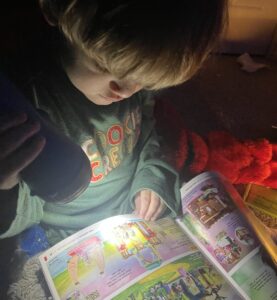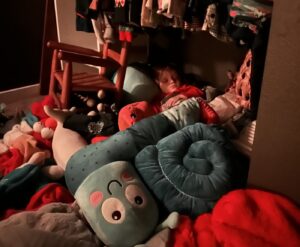Our son with Alagille syndrome is finding it hard to fall asleep
Sleep regression means neither the child nor the parents are getting much rest
Written by |

Raising young children entails a variety of obstacles. For me, one of the most challenging is sleep regression, a temporary decline of a child’s sleep.
My wife and I have been fortunate that both of our boys, Jackson, 6, and Finley, 3, used to be good sleepers. Jackson started sleeping through the night at about 7 weeks old, and he still does. But Finley, who was born with Alagille syndrome, has had a few more obstacles in his way.
As I write this column, Finley is going through a major sleep regression. For months before this, he was perfectly content to stay in his bed after our nighttime routine of taking his medicine, brushing his teeth, reading a book, and covering up with his blanket. About a week ago, though, he started coming out of his room every couple of minutes. As a parent, I’ve been frustrated.
I know what’s happening, and I know he needs reassurance and comfort. I’m also aware that he has some itchiness because of his liver disease, despite our efforts to mitigate it, which include medication, lotion, lightweight pajamas, and more. Still, it’s hard to keep all of that in mind when he emerges from his room for the 15th time in a night.
Jackson went through a few sleep regressions, but they were minor. Now he’s content to play calmly in bed until he falls asleep. But for Finley, my wife and I had to get creative. He started falling asleep in a doorway on the floor, so we made him a makeshift bed there. This invention worked for a few nights, but the other night, he decided that his final resting spot for the evening would be a pile of stuffed animals in the closet. That’s pretty amusing once he’s asleep, but it’s frustrating when he won’t stay in his room.
Another challenge with his current regression is that he finally has the words to share with us that he’s feeling itchy. No matter how many times I hear him say it, my heart always breaks. When he says it at night, he’s already taken his medication for the itch. It feels awful to tell him that we’ve done everything we can and he just needs to rest. What kind of solution is that for a child that can’t sleep?
I’ll never forget when Finley was almost 1. During the night, he’d wake up miserable every couple hours. He was fussy and fidgety, and nothing seemed to work apart from waiting out his exhaustion. Then we discovered that the dosage for his medication hadn’t been corrected for his weight, so he was waking up almost the exact time his medication was wearing off. Once the dosage was corrected, he started sleeping through the night again. It was an exciting moment, as nobody in the house was sleeping well at the time except his brother.
It was also a sad moment when we realized the mistake we’d made. I’m still trying to forgive myself for that, but years later, it’s still hard.
I know that Finley’s sleep regression will eventually pass and he’ll go back to sleeping through the night. But what won’t pass anytime soon is the itch from Alagille syndrome. It’s difficult for me as a parent and caregiver, because there’s only so much I can do to alleviate the symptoms.
While we all continue to navigate this change of routine, I’m trying to be as graceful as I can with Finley. If that means he needs to sleep in a pile of stuffed animals in the closet for a while, so be it. Someday I’ll look back with a smile at all of the photos of his crazy sleep locations, and I’ll forget about the nights we didn’t get enough sleep because we were worrying about Finley’s itch.
Note: Liver Disease News is strictly a news and information website about the disease. It does not provide medical advice, diagnosis, or treatment. This content is not intended to be a substitute for professional medical advice, diagnosis, or treatment. Always seek the advice of your physician or other qualified health provider with any questions you may have regarding a medical condition. Never disregard professional medical advice or delay in seeking it because of something you have read on this website. The opinions expressed in this column are not those of Liver Disease News or its parent company, Bionews, and are intended to spark discussion about issues pertaining to liver disease.









Leave a comment
Fill in the required fields to post. Your email address will not be published.